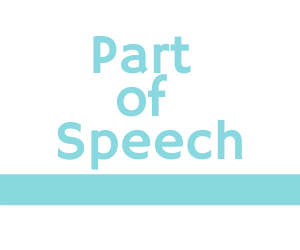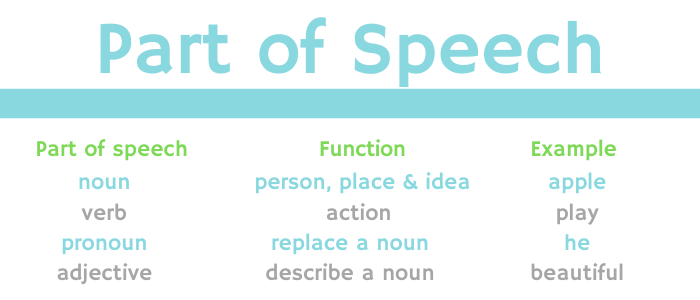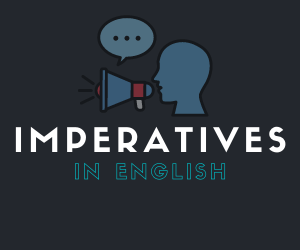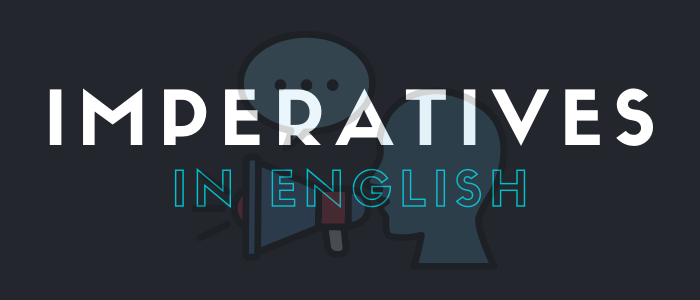Category: Grammar
The 9 parts of speech
Part of speech is a category of words that have similar grammatical properties and explains how the words are used. In fact, the same word can be a noun in a sentence and a verb in the next.
There are 9 parts of speech in the English language: noun, pronoun, verb, adjective, adverb, preposition, conjunction, determiner and interjection. Every sentence you write or speak includes words that fall into some of the nine parts of speech.
There are 9 parts of speech in the English language: noun, pronoun, verb, adjective, adverb, preposition, conjunction, determiner and interjection. Every sentence you write or speak includes words that fall into some of the nine parts of speech.
1. Noun
A noun is a word or word group that is used to name a person, place, thing or an idea.
Example words:
Example sentences:
- Alicia is a little girl.
- My uncle lives in a big castle.
- The pencil is yellow.
- My dog is friendly.
- Do they like pop music?
2. Pronoun
A pronoun is a word that takes the place of a noun for subject, object, or possessive cases.
Example words:
Example sentences:
- Nick is Italian. He is handsome.
- You are an athlete.
- We are a family.
- This money is mine.
- I saw myself in the mirror.
- The ice cream was delicious. Can I have another?
3. Verb
A verb “is what you do!” – it shows an action.
Example words:
Example sentences:
- They play soccer every Saturday.
- She is very attractive.
- The little bird flew away.
- I'll be right back.
4. Adjective
An adjective is a word that describes or clarifies a noun. Adjectives describe nouns by giving some information about their size, shape, age, color, origin or material.
Example words:
Example sentences:
- Her face is beautiful.
- He is old.
- Look at those two birds on the fence.
5. Adverb
An adverb describes a verb, an adjective or another adverb. It tells how, where, when, why, what conditions or degree. Adverbs often end in -ly.
Example words:
Example sentences:
- The messenger arrived quickly.
- We ate sushi yesterday.
- Unfortunately, the bank closed at four today.
- I am usually busy.
- I looked everywhere!
- My wife is very talented.
6. Preposition
A preposition shows the relatioship of a noun or pronoun to another word. It can indicate time, place, or relationship.
Example words:
Example sentences:
- The book is on the table.
- See you at 9 pm.
- I received a letter from my boyfriend.
- They went to school on Saturday.
- Will you come with me?
7. Conjunction
A conjunction joins words, sentences or clauses together.
Example words:
And, or, but, nor, so, yet, because, while, if, unless, etc.
And, or, but, nor, so, yet, because, while, if, unless, etc.
Example sentences:
- She is young and beautiful.
- I like soccer but I prefer basketball.
- I couldn't come because I was sick.
8. Determiner
A determiner limits or determines a noun.
Example words:
A, an, the, this, that, these, those, enough, much, few, etc.
A, an, the, this, that, these, those, enough, much, few, etc.
Example sentences:
- A day.
- I have some rabbits in the farm.
- Do you want this piece of chicken?
9. Interjection
An interjection is a short exclamation.
Example words:
Oh, ouch, hurray, hey, wow, yeah, oops, gosh,
Oh, ouch, hurray, hey, wow, yeah, oops, gosh,
Example sentences:
- Ouch! That hurts!
- Hey! What's up?




























